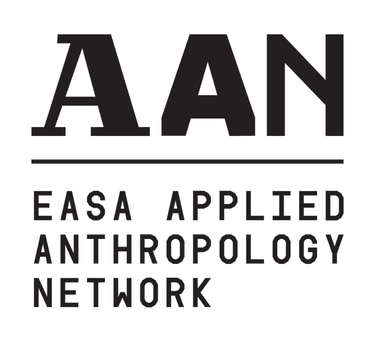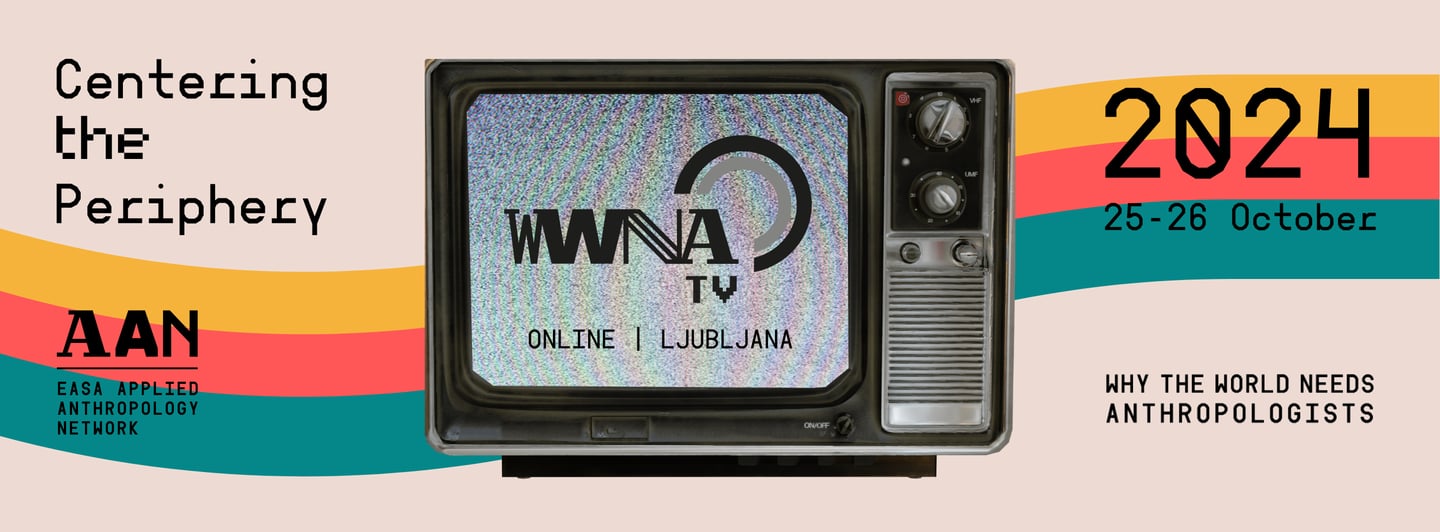

The 12th edition of WWNA highlights the plurality of world anthropologies by showcasing how anthropologists in the “periphery” experience, practice, and reshape anthropology as producers and not just recipients of anthropological theory and practice.
We aim to place the margins of the anthropological discipline at the center of our conversations. We will do this by decentering this year’s event, which will be televised from Ljubljana and followed around the world.
However, it will not be just another online event. Instead, we will invite participants to meet on-site in dozens of locations to learn from and celebrate the diversity of approaches in applied anthropologies worldwide.
Jump to: Program | Speakers | Organising Team
You can watch the full recordings of Day 1 and 2 on our YouTube channel:
You can watch the full videos reporting from the WWNA at Home events here:
PROGRAM
Day 1
Day 2
Before WWNA
October 25th 2024
October 26th 2024
October 11th - 20th 2024
online
online
in-person
Local meet ups taking place globally!
Find out more here:
17:00 - 19:00
(Central European Time)
Speakers from around the world share their experiences:
Hebe Vessuri
Samwel Moses Ntapanta
Rosana Guber
Carla Guerrón Montero
Gayathri Sreedharat
10:00 - 12:00
(Central European Time)
AAN Network Meeting
17:00 - 19:00
(Central European Time)
WWNA at Home Results
Sharing your discussions and thoughts on centering the periphery
The Talks
1. Hebe Vessuri - Periphery, Always a Curse or Could it be a Blessing?
2. Samwel Moses Ntapanta - Repairing the planet from the periphery
3. Rosana Guber - Southern anthropology's displaced center, or how to help
Northern anthropology to disregard the South
4. Carla Guerrón Montero - Centering Ethnography from the Periphery
5. Gayathri Sreedharan - Failures & Obligations when Centering the Periphery
Debate
Peripheral Vision
Carla Guerrón Montero & Dan Podjed
WWNA at Home
Instead of traditional, centralized workshops, we're encouraging local groups worldwide to hold their own informal gatherings before the conference.
These events will focus on the main conference theme, "Centering the Periphery."
By discussing this theme locally, each group will bring unique approaches, perspectives, and methods, enriching the overall conversation.
Day 1
On the first day of the symposium will focus on the importance of adopting a “peripheral vision,” crucial for understanding the unevenness in social, economic, and cultural landscapes. By examining the processes of colonization and hegemony within applied anthropology and beyond, we aim to rethink power relations between the North and South, West and East, center and periphery. We will explore how various forms of anthropology have evolved globally, and how the anthropological periphery – often labeled as the “Global South,” “Third World,” or “Developing World” – can become a center of applied anthropology.
The theme of Day 1 thus underscores the need to address and challenge the asymmetrical power structures that persist in global contexts and within the discipline of anthropology. On this day, we invite speakers worldwide – particularly from the so-called “periphery” – to share their personal, academic, and practical experiences, demonstrating how perspectives can be shifted and the periphery placed at the center.
Join us in this conversation as we reimagine the key question of the symposium – why the world needs anthropologists – through the lens of the periphery!
Day 2
On the second day of WWNA 2024, we bring the global to the local by showcasing the results from our WWNA at Home events. Across the world, applied anthropologists and enthusiasts gathered to tackle the question, "How can we center the periphery within and through applied anthropology?" Join us as we present these diverse perspectives, creative solutions, and innovative ideas, highlighting how local voices are shaping the future of our field. These presentations will not only celebrate local efforts but also provide a rich tapestry of insights that resonate with our central theme.
You can find the full videos reporting from the WWNA at Home events here:
The Speakers
Samwel Moses Ntapanta
is an ethnographer of contemporary urbanism along the western Indian Ocean coast, particularly on coloniality, consumption and discarding, debris of late capitalism, repairing and recycling economies. He's a post-doctoral fellow at the Department of Anthropology at the Aarhus University in Denmark.
Talk : "Repairing the planet from the periphery"
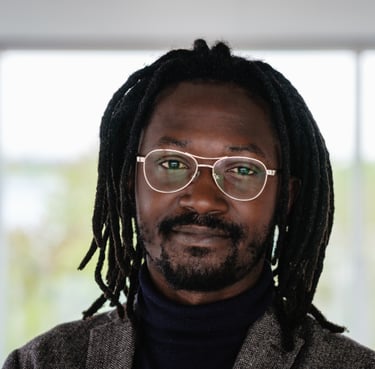

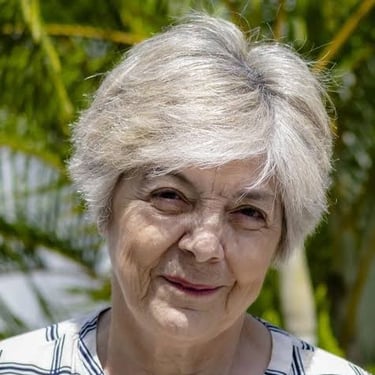

Hebe Vessuri
is a pioneer in the social study of science in Latin America. She studied social anthropology at the University of Oxford and is an Emeritus researcher at the Venezuelan Institute of Scientific Research in Caracas, Venezuela. Her research focus is on science in the global peripheries, with an emphasis on Latin America. She also studies social participation/exclusion, expert knowledge, and the interface between scientific research, higher education, and different forms of knowledge.
Talk : "Periphery, Always a Curse or Could it be a Blessing?"
Rosana Guber
is a Senior Researcher at the Argentine Council of Science and Technology, CONICET, and has a Ph.D. in Anthropology (JHU, U.S.). She also holds a Master's in Social Anthropology (San Martín University) and an International Diploma in Latin American and Caribbean Anthropological Theories (Hurtado, Chile, and San Martín, Argentina). Her research interests include the military experience of the Malvinas/Falkland War (1982), ethnography as fieldwork and text, and the anthropology of Argentine and Latin American anthropology.
Talk : "Southern anthropology's displaced center, or how to help Northern anthropology to disregard the South"
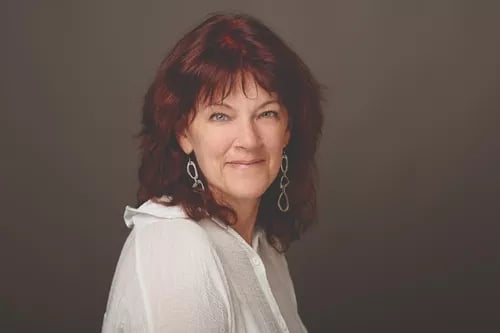

Carla Guerrón Montero
is an applied cultural anthropologist trained in Latin America and the United States. Carla is also a Professor of Anthropology and the Director of the Center for Material Culture Studies (CMCS) at the University of Delaware. Carla studies the anthropology of tourism, the anthropology of food, and the African Diaspora in Latin America. Carla serves as the treasurer of the Society for Applied Anthropology (SfAA).
Talk : "Centering Ethnography from the Periphery"
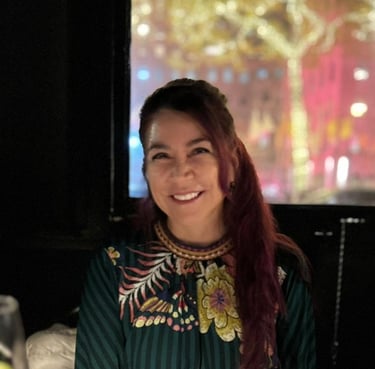

Gayathri Sreedharan
is an Indian applied anthropologist trained in India and the US, and has experience working across India as an ethnographer and applied anthropologist. She's the founder of Anthropie, a boutique consultancy doing ethnographic and design research in India. She has spent over a decade studying the Indian north-east and will therefore talk about specific challenges in that context.
Talk : "Failures & Obligations when Centering the Periphery"
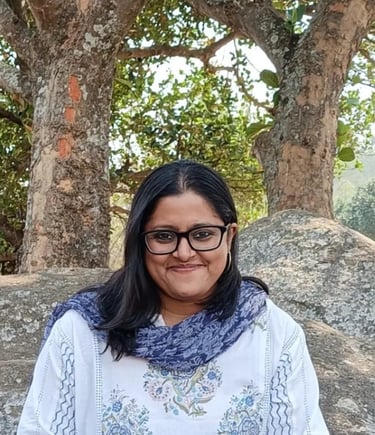

Meet the Team
Dan Podjed
is a Senior Research Fellow at the Research Centre of the Slovenian Academy of Sciences and Arts (Institute of Slovenian Ethnology), an Associate Professor at the University of Ljubljana (Faculty of Arts, Department of Ethnology and Cultural Anthropology), and a Field Expert and Director's Advisor at the Institute for Innovation and Development of the University of Ljubljana. He is the founder and Executive Advisor of the EASA Applied Anthropology Network and the initiator of the international event Why the World Needs Anthropologists. In 2024, he published two books, both titled Crisolation. One is a scientific monograph that explores the emergence of a new condition in which ongoing crises intersect with various forms of isolation. The other is a dystopian novel that depicts a group of people living in a multi-apartment building, confined within four walls and glued to their screens.
Fun Fact: he enjoys most foods, but he absolutely hates prežganka, a soup made in Slovenia by roasting and browning flour, traditionally believed to help with stomach problems. For Dan, though, it has the opposite effect – he finds it utterly revolting! Bljah!




Carla Guerrón Montero
is an applied cultural anthropologist trained in Latin America and the United States. She is a Professor of Anthropology and Director of the Center for Material Culture (CMCS) at the University of Delaware. Carla studies the anthropology of tourism, the anthropology of food, and the African Diaspora in Latin America. Carla serves as the treasurer of the Society for Applied Anthropology (SfAA).
Fun Fact: Her most recent hobby is building miniature models; she is currently working on a tiny greenhouse.
Anna Berza
is a Romanian anthropologist currently living in Switzerland. She has been involved within the AAN for over five years. Her contributions began as a co-organizer of two Satellite Events in Bucharest, after which she became a core team member. In this role, she has been responsible for managing the National Ambassador Program and has also contributed to the organization of the "Why the World Needs Anthropologists" events from 2021 to 2024.
Fun Fact: WWNA2024 will be her 8th consecutive time participating in this event, sparking some speculation if it's not just an excuse for an extra vacation each year.
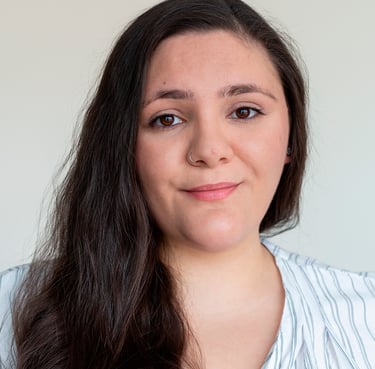

Simon Provoost
has got an MsC in Social and Cultural Anthropology and an Advanced MsC in Cultural Anthropology and Development Studies at KU Leuven. His later specialization was in organizational and corporate anthropology from Umanyx. Currently he pursues his passion for language and education as a foreign language teacher at Linguapolis, University of Antwerp.
Fun Fact: He's told he has a particular facial expression when he's about to tell a pun.


Olivia Schneider
is a Social Anthropology graduate from the University of Oslo and current Co-Convenor of the Applied Anthropology Network. She is particularly interested in the cross-section of migration, gender and health which is reflected in her research on migrant sex workers’ access to health care in Malta.
Fun Fact: Olivia loves to crochet and the fact that she’s perfectly mediocre at it.
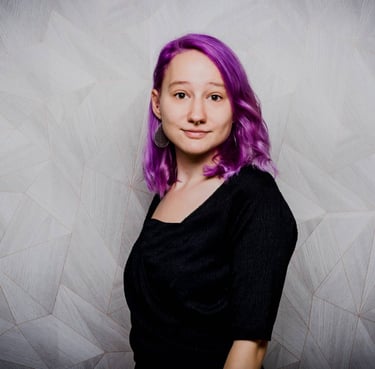

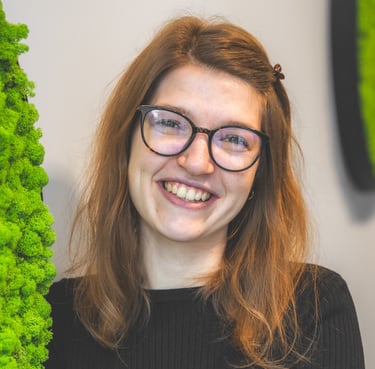

Gašper Raušl
is a Social Anthropology graduate student at the University of Ljubljana and currently serves as a video and podcast editor for the Applied Anthropology Network. His passion for filmmaking began in high school, where he would borrow his mom's camera to create short feature films with friends. For his MA thesis, he is exploring the sensorial dimensions of the human and animal worlds through film.
Fun Fact: he enjoys listening to Latino pop music while showering.
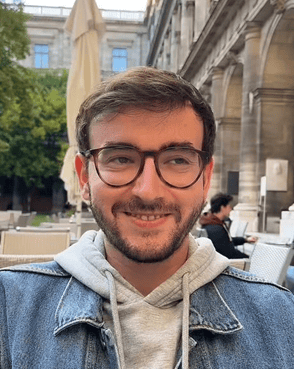

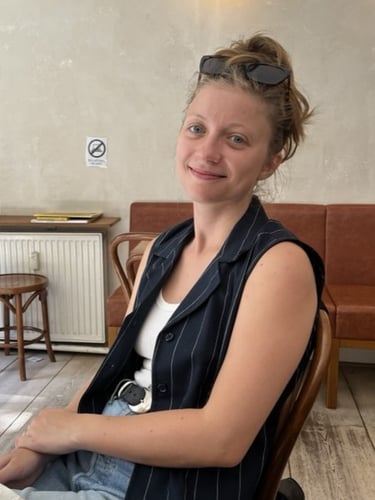

Anuša Babuder
is a cultural anthropology graduate, who is currently working as an assistant researcher at the Slovenian National Building and Civil Engineering Institute. Her area of interest is the relationship between people and built environment, design anthropology and topics related to built heritage. At the Institute she joined projects CDCUL and RENOINVEST, with a focus on how to plan different future communal living spaces. This year she also concluded a master’s thesis focusing on effects of Covid19 pandemic on people in coworking spaces, how community shapes in a particular space and how place affects feelings of belonging in a work setting (in Dublin, Ireland).
Fun Fact: She knows how to write in mediaeval calligraphy.
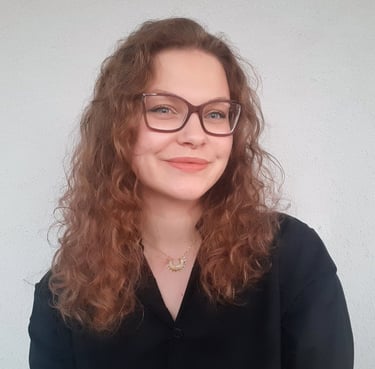

Anja Pogladič
iis a PhD student at the Department of Ethnology and Cultural Anthropology at the University of Ljubljana. She is currently employed as a Junior Researcher at the Institute for Innovation and Development at the University of Ljubljana. Her research interests include health and wellbeing in the workplace, working relationships, and digital anthropology.
Fun Fact: She is enthusiastic about assembling puzzles with classical paintings.
Lena Feichtinger
is a Social and Cultural Anthropology graduate from the University of Vienna. After her BA, she expanded her focus to interdisciplinary approaches, integrating anthropology with design (thinking) and innovation strategies. She then pursued a Master’s in Social Design and Sustainable Innovation in Berlin, where she currently lives and works in gastronomy.
Fun Fact: If she is home (and nobody else is), you'll likely find her singing out loud, often with her ukulele in hand. And when she's not home, she's probably decided to go on a spontaneous (bike) trip into nature.
Organisers & Supporters






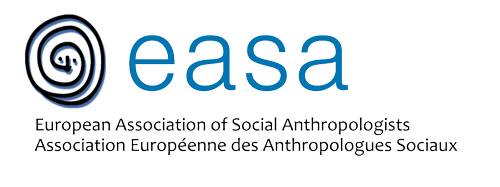





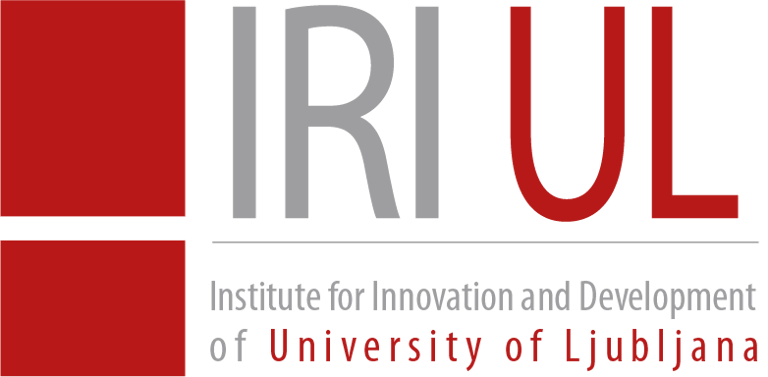



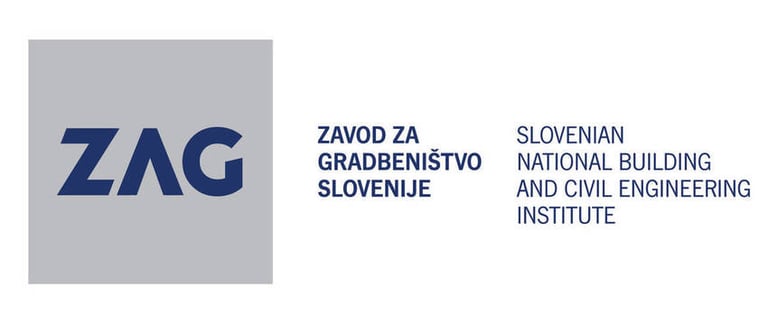

Why the World Needs Anthropologists: Centering the Periphery is a result of the research project Isolated People and Communities in Slovenia and Croatia, funded by the Slovenian Research and Innovation Agency and the Croatian Science Foundation.




